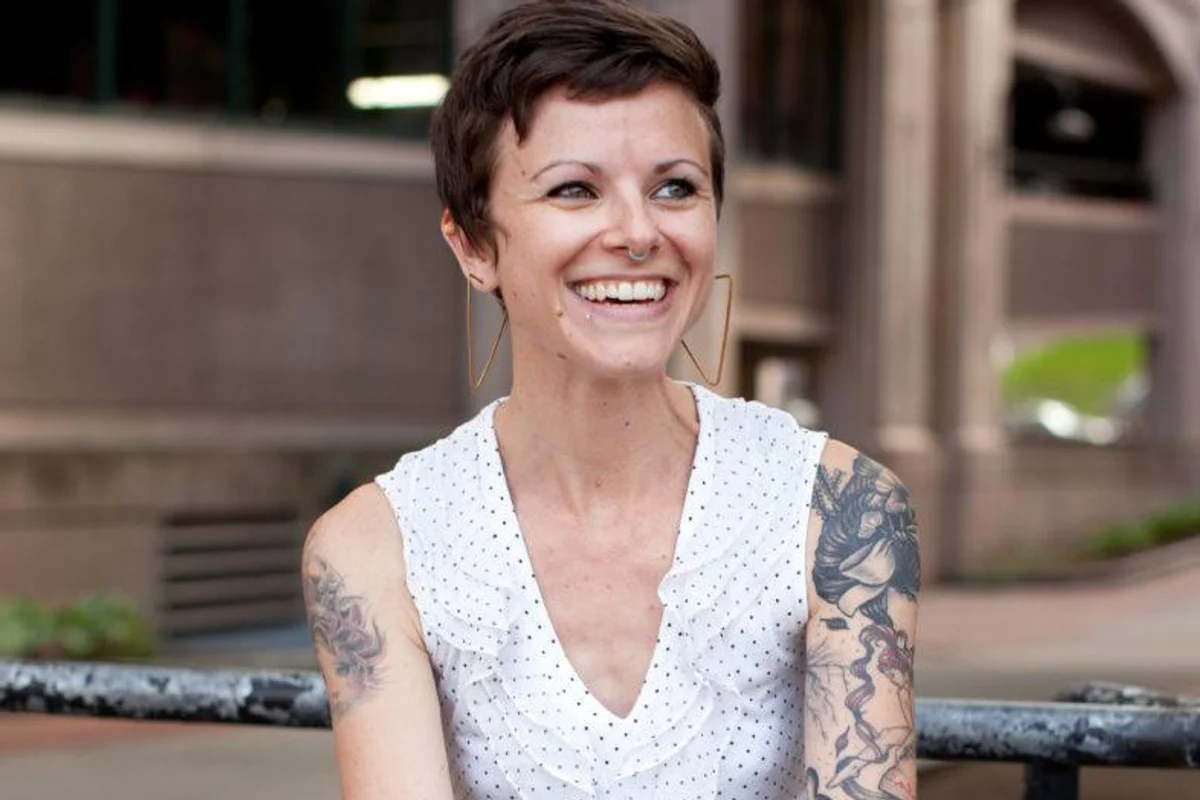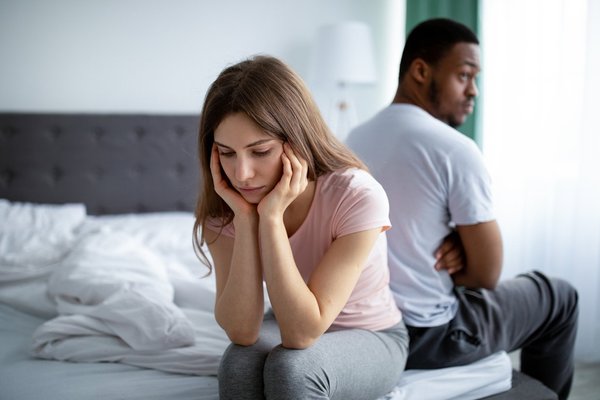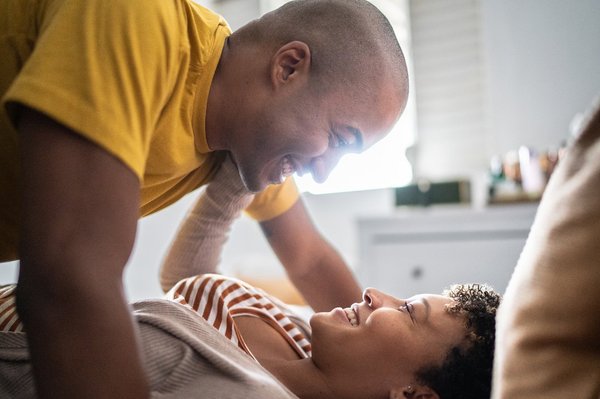I recently interviewed Yana Tallon-Hicks for my story about sexual health in middle age. Tallon-Hicks is a relationship therapist, sex educator, and sex advice writer living in Western Massachusetts. We're publishing the full interview below.
The transcript has been edited for clarity and length.
HealthyWomen: What are some common concerns that women have about their sexual health and sexuality as they age?
Yana Tallon-Hicks: I hear a lot of women worry about loss-of-visibility as a sexually desirable person. Many cultural values and media representations of sexuality can overly focus on markers of youth and materialism: the right clothing, tight bodies, smooth skin, and just the right balance of sexual availability and purity.
Of course, in reality people of all ages are attracted to a super diverse spectrum of bodies, sexual styles, looks, and personality characteristics. However, I think for many aging women, the social pressure to maintain a certain media-made standard can feel like an impossible demand on their sense of desirability, especially as they get older. Which makes sense, because it is impossible.
Menopause is a big marker that can loom for many women as representative of this fear. Luckily, the fields of sexual health, sexual advice journalism, and sex education are speaking more openly about healthy and passionate sexuality after menopause, which helps shed light and reduce fears commonly associated with this checkpoint in female sexuality.
Refreshingly, more and more I work with women who are absorbing the increasingly accepted sexual openness and reduced sexual stigma that the younger millennial generations have been bringing to the table. This has acted as a catalyst for later generations to consider how to embrace their sexual desires more, how to try new sexual things with their spouses and themselves, and how to go about discovering who they really are as complex sexual beings, perhaps after many years of repression or misinformation. This is some of my favorite kinds of work to do.
HealthyWomen: What do you find are common misconceptions about female sexuality, particularly for middle-aged women in our youth-obsessed culture? Does women's desire really wane over the years, or is it more complicated?
Yana Tallon-Hicks: [It's a misconception] that your sex life ends after menopause, after childbirth, after 50, after a certain number of years of marriage, or even after divorce.
There are so many ways someone's desire or libido might wax or wane that have nothing to do with age. Stress, unresolved relationship dynamics, depression, anxiety, medications, changes in routine, or even the current news cycle can negatively impact your desire for sex, no matter your age.
However, for many women, age and experience can actually create an ideal context for sexual desire. Feeling more confident in your body or sense-of-self can have a wonderful positive impact on your desire and sexuality. Long-term relationship security and feeling emotionally safe with your partner can play a big factor in letting your "lizard brain" guard down, which creates mental and physical space for crucial elements of a great sex life — such as pleasure, fantasies, and communication.
Knowing yourself well is an important pre-requisite to setting healthy boundaries, asking for what you want out of sex, and coaching your partner(s) through how to sexually interact with your body best. Having children in your household can force you to schedule sex, making intentional space to connect to your partner or yourself sexually, which is something that can actually keep your sex life thriving longer.
HealthyWomen: How do you recommend couples in long-term relationships deepen their sexual connection and rekindle desire? Please share any books, podcasts, and other resources you love.
Yana Tallon-Hicks: Talk about sex outside of a sexual context. I cannot recommend this strongly enough. Whether you talk about your sex life over coffee, in the car, or in a couples therapist's office, bringing sex out of the bedroom and into the your everyday, daily life can a hugely beneficial move for long-term couples.
It's perfectly normal and healthy to have an "old standby" sexual routine that you fall back on — most couples do! This routine might be the order of sexual acts that you and your partner move through when you're squeezing sex in during the baby's nap time, or late at night after a long workday. Though a sexual routine can be helpful and reliably pleasurable, it can be easy for a routine to become a rut.
The best way to get out of a rut is to talk about the rut — not when you're in it, but when you're out of it, with a clear head, and perhaps, with your clothes on (meaning, your adrenaline down). Discussion points might include: what's going well, what you'd each like to see go differently, any fears or hesitations you might have in shifting your sexual routines, or any emotional or old unresolved conflicts that might be blocking your sexual connection. Some couples might find they can easily have these conversations on their own, and some might find these conversations run much smoother with the help of sex-positive couples therapist.
No matter how you have these conversations (and I recommend several smaller conversations rather than one big one), remember that your sex life is a shared, collaborative project that you're both invested in making pleasurable, enjoyable, and healthy, not a game either one of you should be angling to win, lose, or cast or accept blame for.
To help jumpstart these conversations or get inspiration, I recommend Mating in Captivity by Esther Perel or her podcast Where Should We Begin? I also recommend checking out a Yes/No/Maybe list which walks couples through a sexual inventory. And I always recommend Come As You Are by Emily Nagoski, which also has a great companion workbook.
HealthyWomen: What are your thoughts about a pharmaceutical "solution" to enhance women's libido?
Yana Tallon-Hicks: I think any money-making medication encourages its target audience to skip crucial contextual factors that may be influencing their presenting problem in favor of a quick fix. For example, taking a pill that claims to enhance libido won't untangle deep-seated resentments that have rotted your connection to your partner, untangle societal shame that might be keeping you from your fullest sexual expression, or teach you or your partner about pleasurable anatomy like the clitoris, G-spot, or safer kinky sex. Sometimes a vibrator might be the answer more than medication, but you won't know what else is possible if you skip the self-discovery and head straight to pharmaceutical solutions.
HealthyWomen: Any last insights you'd like to share with middle-aged women?
Yana Tallon-Hicks: Remember that your sex life is also part of your real life. When addressing any sexual issue, don't forget to zoom out and look at the other influences that may be at play such as relationship health, personal beliefs, mental health, physical health, and lack of adequate sexual resources and education. And finally, take a deep breath and have fun — sex is supposed to feel good after all.







